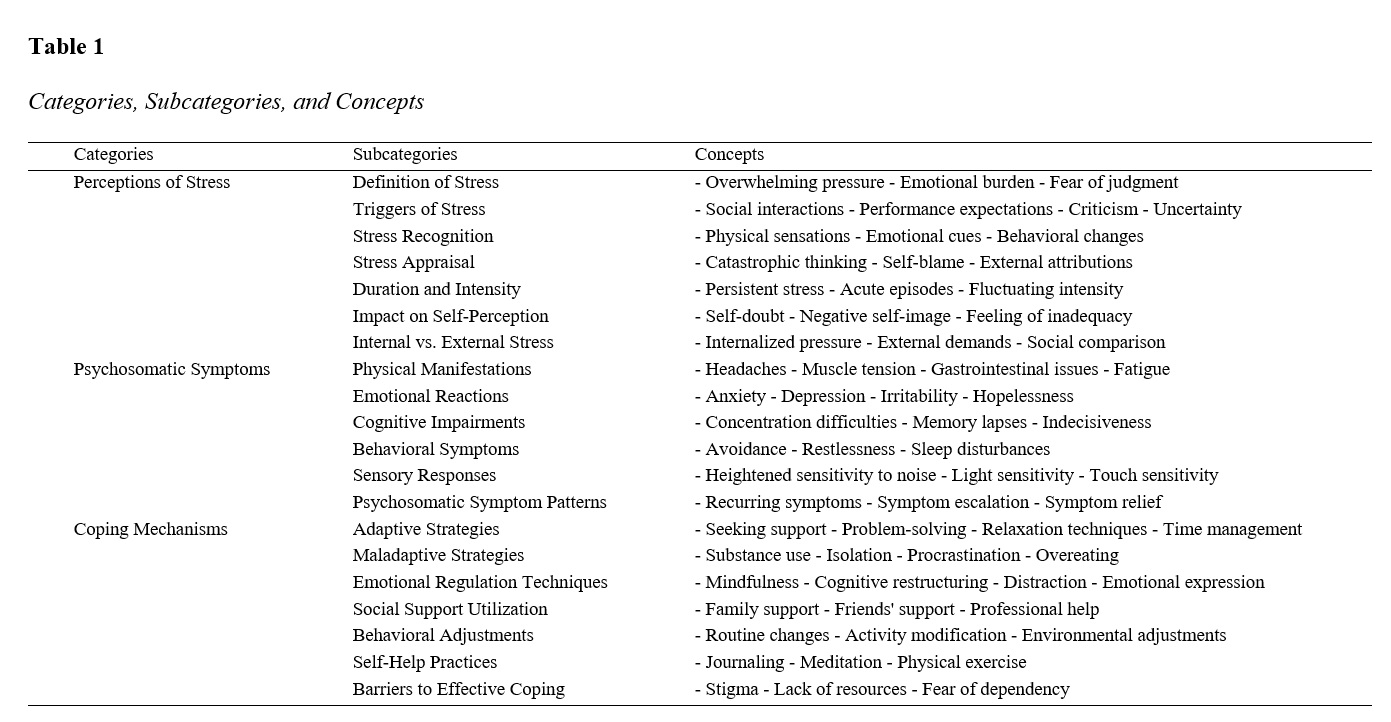Exploring the Psychosomatic Responses to Stress in Individuals with Avoidant Personality Disorder
Keywords:
Avoidant Personality Disorder, Psychosomatic Responses, stress, qualitative research, coping mechanisms, cognitive-behavioral therapy, mental healthAbstract
This study aims to explore the psychosomatic responses to stress in individuals with Avoidant Personality Disorder (AvPD). The research utilized a qualitative design, employing semi-structured interviews with 16 individuals diagnosed with AvPD. Participants were recruited from mental health clinics and support groups specializing in personality disorders. Data collection continued until theoretical saturation was achieved. The interviews were transcribed verbatim and analyzed using NVivo software. Thematic analysis was conducted to identify patterns and themes in the data, focusing on participants' perceptions of stress, psychosomatic symptoms, and coping mechanisms. Ethical considerations included obtaining informed consent and ensuring confidentiality. The study identified three main themes: perceptions of stress, psychosomatic symptoms, and coping mechanisms. Participants described stress as overwhelming pressure and emotional burden, with key triggers being social interactions, performance expectations, criticism, and uncertainty. Psychosomatic symptoms included physical manifestations like headaches and muscle tension, emotional reactions such as anxiety and depression, cognitive impairments, behavioral symptoms, and heightened sensory responses. Coping mechanisms varied, with adaptive strategies including seeking support and problem-solving, and maladaptive strategies such as substance use and isolation. Barriers to effective coping included stigma and lack of resources. The findings highlight the significant impact of stress on both psychological and physical health in individuals with AvPD. The study underscores the need for comprehensive assessment and treatment strategies that address psychosomatic symptoms. Future research should focus on larger and more diverse samples, longitudinal studies, and objective measures of stress. Clinical practice should integrate cognitive-behavioral therapy and promote adaptive coping strategies to enhance the well-being of individuals with AvPD.
Downloads

Downloads
Additional Files
Published
Issue
Section
License
Copyright (c) 2024 Valerie Karstensen, Geoffrey Olsen (Author); Mathias Bastholm (Corresponding Author)

This work is licensed under a Creative Commons Attribution-NonCommercial 4.0 International License.






